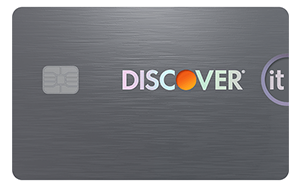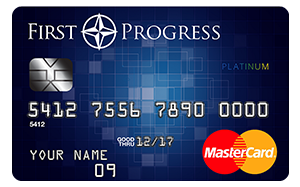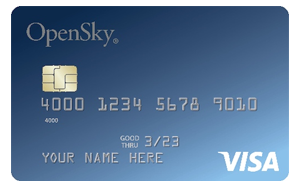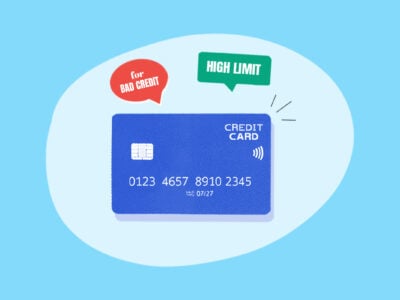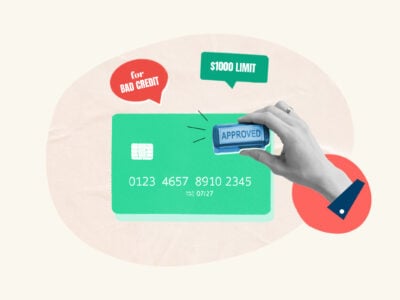Starter Credit Cards
| Credit Card | Best For | Credit Score | Annual Fee | Welcome Bonus | |
|---|---|---|---|---|---|
| Secured | 300–669 | $0 | Cashback Match | ||
| Unsecured (No Deposit) | 300–669 | $39 ($0 for the first year if you set up autopay) | |||
| Beginners | 300–669 | $49 | |||
| Students | 580–739 | $0 | Cashback match | ||
| No Annual Fee | 300–669 | $0 | |||
| High Approval Odds | 300–669 | $35 | |||
| Building Credit | 300–669 | $0 | |||
Table of Contents
Getting your first credit card is a momentous occasion, and the fact that you’re doing research about which card to start with is a good omen for your financial future.
Many people begin their credit journey by applying for the first card offers that hit their mailboxes or jumping at card-signup discount offers from retail stores. While those aren’t necessarily bad ways to begin with credit, it’s easy to miss out on getting a starter card with the best perks.
When you’re a beginner, it’s also easy to get rejected for a card and accidentally hurt your credit score by triggering an unnecessary hard inquiry into your credit. Starter cards are designed to solve this problem and help you get access to credit even if you have no credit history or a very thin credit file.
Note that when you’re just starting out, most credit issuers will view you as a risky borrower and won’t be willing to offer you huge credit limits, low interest rates, and the perks and rewards that come with premium cards. But that’s OK. Provided you carefully apply for your first credit card and use it responsibly, you’ll get access to better cards before you know it.
Best starter credit cards
These entry-level credit cards are a good choice for anybody just starting their financial journey. A good starting credit card helps you build your credit by reporting your account history to all three major credit reporting agencies while also keeping fees and interest rates low. Take a look at what our experts have chosen as the best starter credit cards.
Best secured starter credit card
Discover it® Secured Credit Card
Rating Breakdown
Fees
4.9No annual fee and no foreign transaction fees score this card a high rating in the fees department.
APR
2.7Carrying a balance could get costly on this card, given the high purchase APR.
Rewards
4.4Considering it’s a secured card, the Discover it® Secured offers impressive rewards and even a cashback welcome bonus.
Credit Reporting
5.0Discover reports to the major credit bureaus, which can help you build your credit.
Security Deposit
4.0The minimum and maximum security deposit allow a good range of flexibility for you to determine your credit limit.
Other
We adjusted for factors like free credit scores and a fully refundable security deposit.
|
Annual
Fee
$0 |
Credit
Score
300–669 |
|
Deposit
$200–$2,500 |
Purchase
APR
25.99% (variable) |
Rewards
-
Welcome Bonus
Cashback Match earns you a dollar-for-dollar match on your first-year rewards
-
Gas & Restaurants
2% cash back up to $1,000 in combined spending each quarter
-
Everything Else
1% cash back on all eligible purchases
Why It's Great
The Discover it® Secured credit card is our top pick for secured first credit cards, as it's a flexible, accessible option that offers major perks.
It's one of the only secured credit cards that offers cashback rewards—and a rather generous rewards program at that. Here's how it works:
- 2% cash back on gas and restaurant purchases (up to $1,000 each quarter)
- 1% cash back on all other purchases (unlimited)
- 1-for-1 cashback match in your first 12 months (every dollar you earn in cash back will be doubled in your first year of card ownership)
Given the cashback match in the first year, you have major potential to earn big bucks while building credit with your first credit card.
Keep in mind that the card is secured, so it requires a security deposit when you open the account. Card issuers are more likely to approve first-timers for secured cards because the refundable down payment acts as collateral against new borrowers that haven't proven their responsibility yet.
Along with the rewards, the card comes with no annual fee and the ability to upgrade to an unsecured card in as few as 7 months.
Pros & Cons
Pros
- No annual fee
- Cashback rewards
- Easy application
- Cashback Match the first year
- Option to upgrade to an unsecured card
- Low intro APR
Cons
- High regular APR
- Deposit required
- Limited acceptance abroad
Best unsecured (no deposit) starter credit card
Prosper® Card
Rating Breakdown
Fees
4.8Compared to other unsecured cards for less-than-perfect credit, the Prosper® Card offers more bang for your buck, with a relatively low annual fee and no cash advance fees.
APR
1.8The Prosper® Card comes with a pretty broad APR range, and there’s a good chance you’ll end up with a high interest rate.
Rewards
1.0Because the Prosper® Card doesn’t offer any credit card rewards, it earns the lowest possible score in the rewards category.
Credit Reporting
5.0The Prosper® Card issuer reports activity to the three major credit bureaus.
Credit Limit
4.5Generous credit limits and a willingness to offer credit line increases very soon after account opening earn this card a high rating in this category.
Other
We adjusted the rating for additional factors like the lack of a security deposit and the short time period before cardholders are eligible for credit line increases.
|
Annual
Fee
$39 ($0 for the first year if you set up autopay) |
Credit
Score
300–669 |
|
Purchase
APR
22.74%–33.74% (variable) |
Credit
Limit
$500–$3,000 |
Why It's Great
You may notice that most of the credit cards available to new borrowers are secured, meaning they require a deposit. However, there are a few exceptions for those who don't want to pay money up front. One of the best of these options is the Prosper® Card.
The Prosper® Card is an unsecured credit card for bad credit and no credit borrowers. Even though it doesn't require a deposit, it starts you off with a credit limit between $300–$5,000. This range is definitely on the high side for starter credit cards, especially for an unsecured one.
On the downside, the card does come at the cost of an annual fee. But don't be too discouraged, as the fee is only $39. Even better, that fee will get waived in your first year of borrowing if you set up online autopay.
Pros & Cons
Pros
- No deposit required
- No cash advance fees
- Fast application
- Credit limit increases available after 3 months
- Foreign transactions are available
Cons
- High APR
- $39 annual fee
- No rewards
- No welcome bonus or intro offers
- Balance transfers not available
Best credit card for beginners
|
Annual
Fee
$49 |
Credit
Score
300–669 |
|
Deposit
$200–$2,000 |
Purchase
APR
13.74% (variable) |
Why It's Great
The First Progress Platinum Prestige Mastercard® Secured credit card is the best starter card for no-credit borrowers who are new to credit. It's an easy-to-use option that offers instant approval to nearly all applicants.
Like other secured cards, it requires an initial security deposit (minimum of $200) that will be returned to you once you close your account. In exchange, they're likely to approve your application without even looking at your credit history, meaning it doesn't matter that you don't have one.
The First Progress Platinum Prestige Mastercard® Secured reports to the major credit bureaus, which helps you quickly build a credit report. But best of all, the First Progress Platinum Prestige Mastercard® Secured has notably low APR among options for first credit cards. In fact, the interest rate is over two times lower than comparable cards.
Low APR means a lower interest rate, so carrying a balance from month to month won't bury you in interest charges. As a new borrower, it's easy to mis-budget and accidentally leave a balance on your card. This one allows you to dip your toes into borrowing without immediately getting deep in credit card debt.
Pros & Cons
Pros
- Low APR
- No credit inquiry required
- The security deposit is refundable
- Reports to the bureaus
Cons
- $49 annual fee
- Requires a security deposit
- Requires a Synovus bank account
- The card can’t be upgraded to an unsecured card
Best starter card for students
Discover it® Student Cash Back
|
Annual
Fee
$0 |
Credit
Score
580–739 |
|
Purchase
APR
15.99%–24.99% (variable) |
0% APR
Period
6 Months |
Rewards
-
Welcome Bonus
Cashback match earns you a dollar-for-dollar match on your first-year rewards
-
Rotating Category
5% cash back on select purchases each quarter (e.g., Amazon, grocery stores, restaurants, gas stations, and PayPal), up to the quarterly maximum
-
Everything Else
1% cash back on all other eligible purchases
Why It's Great
If you’re looking for a student credit card as your first credit card ever, you can’t go wrong with the Discover it® Student Cash Back. As a card designed specifically for students, your application is likely to be approved even if you have no prior credit history.
The card boasts great promotional offers, including 0% APR on purchases for your first 6 months and a dollar-for-dollar cashback match for your first year. Even after these benefits expire, you may want to stick with the card for its $0 annual fee and good rewards system:
- 5% cash back on food and gas
- 1% cash back on all other purchases
Considering the rewards, cashback match, and introductory APR, this card can go a long way in helping you settle into a new school. Books and dorm supplies don't come cheap, so getting even a little bit of that money is a big help.
Finally, the Good Grade Reward provides a $20 statement credit for having a 3.0 GPA or higher for five years after opening your card.
Pros & Cons
Pros
- No annual fee
- Cashback rewards
- Sign-on bonus
- 0% APR
- Cashback match
- Good Grade Rewards program
Cons
- Variable rewards
- High APR
- Limited acceptance abroad
- Must be a student to open an account
Best first credit card with no annual fee
Petal 2 "Cash Back, No Fees" Visa®
Rating Breakdown
Fees
4.7Because the Petal 2 Visa® stays true to its “no fees” name, it scores very highly in this category.
APR
2.2The Petal 2 Visa® has a wide range of interest rates, and less creditworthy borrowers could be hit with high APR.
Rewards
2.5This card has a fairly complicated rewards program, although it’s still one that’s worth having.
Credit Reporting
5.0Petal cards report to all three of the major credit bureaus, so the Petal 2 Visa® ticks all the boxes for building credit.
Credit Limit
5.0The Petal 2 Visa® gives you a credit line of up to $10,000, which is very generous.
Other
We gave the Petal 2 Visa® extra credit for its accessibility, since it accepts applicants with no credit score and applicants without a Social Security number.
|
Annual
Fee
$0 |
Credit
Score
300–669 |
|
Purchase
APR
15.99%–29.99% (variable) |
Rewards
-
All Purchases
1%–1.5% cash back on all eligible purchases (your rate increases to 1.25% after 6 on-time payments, 1.5% after 12 on-time payments)
Why It's Great
The Petal® 2 "Cash Back, No Fees" Visa® is one of the lowest-cost borrowing options for new credit card owners. It lives up to it's No Fees moniker, as it doesn't charge any:
- Annual fee
- Foreign transaction fee
- Late fee
What's more, it's among the small list of credit cards without SSN requirements, meaning new borrowers not originally from the US can still qualify.
Along with its low cost and high availability, the biggest perk of the Petal® 2 is its cashback rewards program, which can you earn 1%–10% cash back on everyday purchases.
Unlike most cards on this list, the Petal® 2 is unsecured, so it won't require you to put down a security deposit.
Pros & Cons
Pros
- No annual fee
- No foreign transaction fees
- No late payment fees
- 1%–1.5% rewards rate
- Available to people with no credit score
Cons
- Potentially high APR
- No introductory APR
- No balance transfers or cash advances
Best first credit card with high approval odds
OpenSky® Secured Visa®
Rating Breakdown
Fees
4.6The OpenSky® Secured Visa® does well in the fees category thanks to the low annual fees.
APR
3.3The OpenSky® Secured Visa® has reasonable interest rates on purchases and cash advances, especially compared to other cards for this credit range.
Rewards
1.0Because this card doesn’t give you any returns for your spending, it gets the lowest possible score in the rewards category.
Credit Reporting
5.0The OpenSky® Secured Visa® reports to all three credit bureaus, so it gets top marks for credit reporting.
Security Deposit
4.0The OpenSky® Secured Visa® allows you to put down as little as $200 or as much as $3,000, so there’s a reasonable amount of flexibility about how much security deposit you pay (and credit limit you get in return).
Other
We bumped up the score a bit for this card because of its good accessibility, since it has high approval odds and is available to borrowers with no credit history.
|
Annual
Fee
$35 |
Credit
Score
300–669 |
|
Deposit
$200–$3,000 |
Purchase
APR
21.14% (variable) |
Why It's Great
If you haven’t had luck applying for your first credit card, try the OpenSky® Secured Visa®. Your application will almost certainly be approved as long as you pay the initial, refundable fee. That's why this card consistently tops lists of best guaranteed-approval credit cards and instant-approval credit cards.
No credit check is required when you apply, so you won't get a hard inquiry, and your lack of credit history won't knock you out of the running. With a low APR, this card is a decent option for people just starting out.
Also, the more you deposit, the higher your credit limit will be—up to $3000. Credit limits above $500 are hard to find on starter credit cards, so this one potentially gives you a lot of spending power if you're willing to pay the deposit.
Pros & Cons
Pros
- Helps build credit
- Low APR
- No checking account required
- High approval odds
Cons
- Requires a security deposit
- Charges an annual fee
- Can’t upgrade to an unsecured card
- No rewards
Best first credit card for building credit
Capital One® Platinum Secured Credit Card
Rating Breakdown
Fees
5.0The card boasts no annual fee, no foreign transaction fees, and standard fees for functions like cash advances.
APR
2.6The card has a relatively high purchase APR, making it expensive to carry a balance on.
Rewards
1.0Unfortunately, there are no cashback rewards on the Capital One® Platinum Secured.
Credit Reporting
5.0Capital One reports to the three major credit bureaus, making this card a good option for building credit.
Security Deposit
4.6This card has one of the best security deposit offers available, as you actually can put less money down then you get as a credit limit.
Other
We manually adjusted the card’s rating for factors like free credit scores and a fully refundable security deposit.
|
Annual
Fee
$0 |
Credit
Score
300–669 |
|
Deposit
$49–$200 |
Purchase
APR
26.49% (variable) |
Why It's Great
If your top priority is building credit quickly and reliably, look no further than the Capital One® Platinum Secured credit card. It's one of the best credit cards for building credit out there, and easily accessible to completely new borrowers.
Among its many perks, the card boasts:
- No annual fee
- No foreign transaction fees
- Flexible due dates
- A flexible security deposit
- Credit limit increases
- CreditWise, a virtual credit monitoring service
But what's truly unique about this card is how its security deposit works. On most secured cards, you pay a deposit and get an equivalent credit limit. On the Capital One® Platinum Secured, you can pay as little as $49 and still get an initial credit limit of $200 with the potential for a limit increase.
Pros & Cons
Pros
- No annual fee
- Potential for increased credit limit after six months
- Credit monitoring
- Flexible deposit
Cons
- No rewards or sign-on bonuses
- High APR
How do you get your first credit card?
Getting your first credit card isn’t actually too difficult if you’re careful about which card you pick. Just follow these steps:
1. Confirm your eligibility
If you’re employed and have a steady source of income, it’s easy to get your first credit card. To meet its eligibility requirements, you must:
- Be 18 years or older to apply
- Have a valid Social Security number
- Prove to the card issuer that you can afford the expenses
If you have substantial savings or someone regularly transfers money to you, you may qualify even if you don’t have a job. If your income and savings aren’t substantial, you’ll have better chances of approval if you apply for a good secured credit card. Because of the nature of how secured credit cards work, you need to make a security deposit (which will act as your credit limit). If you don’t pay your bills, the credit issuer will simply claim your deposit as collateral, reducing the risk on their end.
2. Consider your options carefully
After you confirm your eligibility, it’s important to think carefully before choosing your first card. You’ll want to avoid:
- Getting rejected: Each application will trigger a hard inquiry into your credit report, resulting in a small penalty to your credit score. Too many hard inquiries in a short time will cause your score to plummet and your future credit card applications may be denied, so you don’t want to carelessly apply for cards you might not get.
- Unfavorable terms: Some cards prey on ignorance, requiring you to pay unnecessary fees and abnormally high interest rates. Review the advantages and disadvantages of each card you apply to, as well as their terms of agreement.
3. Submit your application
The application process for most credit cards is straightforward and generally amounts to filling out a form online or in person. There’s a good chance you’ve received advertisements for credit cards by mail or been asked to sign up for a credit card when checking out at a retailer.
4. Finalize all requirements
If you apply for a secured credit card as your starter card, you’ll need to pay the deposit before you receive it or risk being rejected. With an unsecured credit card, if your application is accepted, you’ll simply receive the card in the mail. Then just follow the instructions to activate your card (which usually involves calling an automated phone number, then entering in your card details and a pin number).
5. If you’re denied: attempt to apply for another card
Before applying for a different card, first make sure you understand why your application was rejected. The card issuer will usually provide you with a reason—for instance, you might have insufficient credit history, or a credit score that’s too low. Once you understand the reason, pick a different card that you’re more likely to be approved for. For instance, you can look for a credit issuer that doesn’t perform credit checks.
A good rule of thumb is to send out an application once every two weeks until you successfully get a card. However, if you’re careful about which cards you apply for, one application should be more than enough.
How many credit cards should I have?
Deciding how many credit cards you should have will vary depending on your individual financial situation. In general, you should only ever have as many credit cards as you can comfortably afford. If you reliably pay the bills on many different accounts, your credit score will increase. However, it’s much better for your score to manage a few accounts well than many accounts poorly.
What should you look for in a starter credit card?
Before choosing your starter credit card, there are a few key considerations to keep in mind. Be on the lookout for the following:
- Account reporting to the three main credit bureaus: When your credit issuer reports to Experian, Equifax, and TransUnion, it lets you maximize the credit history you’re building with your card and helps you graduate to better credit cards in the future.
- Affordable security deposits: If you’re applying for a secured credit card, you don’t need a huge credit limit. This means you should look for a card with a reasonable minimum security deposit.
- Low or no processing, maintenance, or annual fees: Credit card fees are only worth it if you get rewards and perks that offset the cost. With starter cards, you don’t get many perks, so paying for fees is useless and unnecessary.
- Low APR: Unfortunately, high APR credit cards are usually unavoidable if you have no credit or a bad credit score. As a result, you’ll want to diligently pay off your balance each month to avoid costly rollovers that tack on high interest payments.
What all of that boils down to is that you should look for an affordable credit card that helps you build your credit while giving you a low-cost opportunity to understand the basics of how credit cards work.
Why building credit is important
Establishing a good credit score has several important consequences. Once you’ve demonstrated your ability to pay off smaller lines of credit, lenders will trust you with larger ones. This increases the chance that you can make major purchases on credit or receive substantial loans. Landlords often check the credit scores of potential tenants, so a good score will make it easier for you to rent apartments.
How can you build credit with your first credit card?
As a new credit card owner, knowing how to build your credit score is particularly important. To do so, choose a card that has few fees and reports to the three major credit agencies. This both makes it easier to pay your bills on time and maximizes the benefits you’ll see for doing so. Building credit takes time, but consistency pays off: If you manage your account well for a year, you should start to see your score rise.
Here’s how to use a credit card responsibly and manage your account well:
1. Don’t spend too much on your credit card
Although using your credit card can build your credit, you shouldn’t use it extensively. That may seem counterintuitive, but it’s the cornerstone of responsible credit use. You should view your credit card as a helpful tool, not as a license to go on a spending spree.
That’s because credit utilization, or the percentage of your overall credit limit that you use, has a significant impact on your credit score. Try to stay below 30% of your limit. For example, if you have a $1,000 card limit, you shouldn’t spend more than $300 on it per month (because $300 is 30% of $1,000). It’s even better to keep your utilization in the single digits if you can. It makes lenders nervous if you’re constantly maxing out or overusing your credit.
2. Always pay your bills on time
It’s very important to make all of your payments on time. Even one late payment can damage your credit, and a consistent history of overdue payments is very harmful. Nonpayments (i.e., debts that you just never pay off) are even worse for your credit score, not to mention your mental health when debt collectors come knocking.
3. Avoid accumulating debt from interest
Paying interest itself doesn’t hurt your credit score, but when you can’t pay back your debts, or pay them on time, that’s when your credit score will take severe damage. Here’s how that might happen.
Interest scenario
Every month, your credit card company will ask you to pay a minimum amount on the charges you’ve made to your credit card. If you spend $200, they may ask you to pay $15 dollars of it at minimum. If you don’t pay off the entire bill, you’ll owe interest on the remainder.
Imagine you only pay $100 of the $200 you owe, meaning you still owe $100. If your interest rate is 20%, you’ll owe an additional $20 on top of the $100 you owe, or $120 in total. That’s because $100 x 20% is $20.
Now imagine you’re spending thousands of dollars on your credit card and not paying it off. Your interest charges will be hundreds of dollars every month, and you’ll quickly begin accumulating debt you can’t pay back.
Don’t open the gateway to poor finances by paying credit card interest. Use your starter card responsibly, build up your credit, and save for your future.
FinanceJar credit card rating methodology
How we rate our starter credit cards
Your first credit card is a big decision. That's why FinanceJar's card experts carefully studied the following details of each card on this list to ensure the best value for credit beginners:
- Account Reporting to Major Bureaus
- Annual, Maintenance, and Late Fees
- Interest Rates
- Credit Score Required
- Deposit Amount (if applicable)
- Customer Satisfaction
These factors, among many others, are part of our 5-star credit card rating methodology for all card categories. Our star ratings are unbiased and independent of our affiliates and advertisers.

